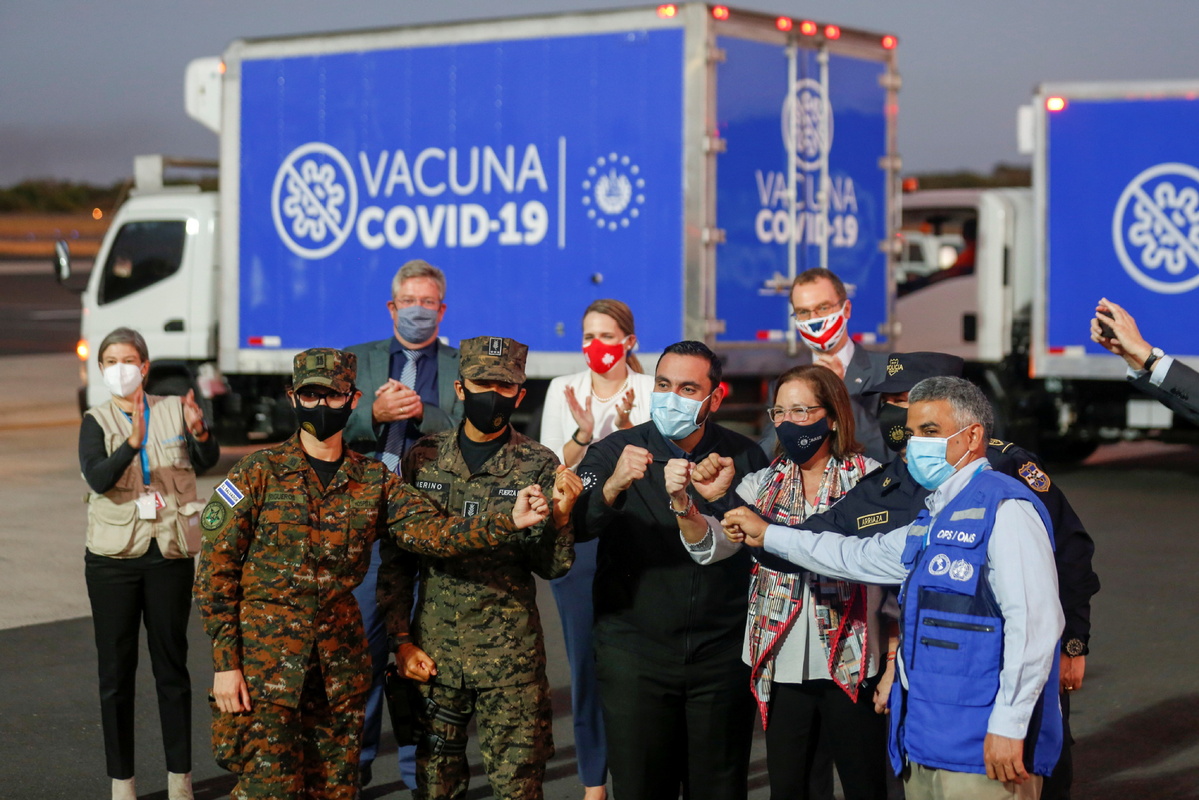Western actions making virus situation from bad to worse
chinadaily.com.cn | Updated: 2021-03-18 14:43

Although mass vaccination campaigns are accelerating in the West, the end of the COVID-19 pandemic is still not in sight. For that, the United States and other rich countries have only themselves to blame, according to Gulf Times, a Qatar-based newspaper.
It has been clear at least since the early summer of 2020 that even with effective vaccines in hand, COVID-19 will not stop until populations everywhere achieve herd immunity – when the share of people still susceptible to infection is so small that the disease can no longer spread, said the report, citing opinions from an MIT professor.
It isn't enough for any individual country to reach this point. As long as the virus is still circulating in other parts of the world, random mutations will continue to occur. Some will be disadvantageous to the virus, but some will render it even more contagious or deadly.
Since December, three highly infectious strains of the virus have been identified. With a significantly higher transmission rate, the British variant, B.1.1.7, is already spreading rapidly within Europe and the US. The South African variant, B.1.351, may be even more contagious. And the Brazilian strain, P.1, may be the most dangerous of all.
The emergence of new variants means that even when the UK reaches herd immunity, Britons still will not be out of the woods. Unless the UK seals itself off completely from the rest of the world, those who travel outside the country will bring back new variants, and some of these could be capable of bypassing the protections given by the current vaccines.
True, scientists should be able to reprogram the vaccines to be effective against the new variants once they have been identified. But this flexibility is small consolation after a variant enters a country and forces economic and social life back into a state of lockdown. Once this happens, the entire population must line up again for booster shots.
If the rest of the world gets vaccinated quickly, halting the virus's spread and thus its opportunities to acquire new mutations, this scenario can be avoided. But worldwide vaccination seems impossible at the moment, because not enough doses are being made available in the developing world.
Had we managed to provide the two billion doses sought by the World Health Organization's COVAX program, it would still have been exceedingly difficult to achieve widespread vaccination in remote parts of Africa, Asia, and the Middle East, owing to a lack of basic health infrastructure and transport networks.
Coordinating the global delivery of vaccines is crucial for defeating the pandemic.
Despite the precariousness of the situation, Western governments and business lobbies are busy coming up with bad ideas instead of attempting to provide more vaccines to the developing world.
If Western countries continue to focus solely on vaccinating their own populations while ignoring the need for global co-ordination, they should prepare for a future without unencumbered international travel.
























